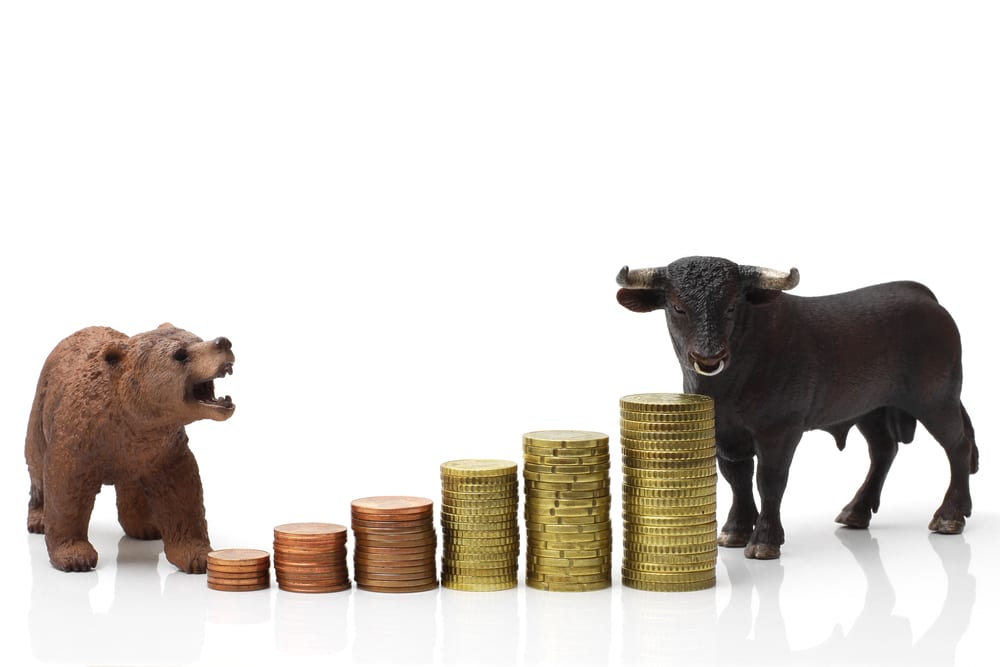On Sept. 6, the European Central Bank (ECB) committed itself to buying the bonds of cash-strapped euro-zone members. Last Thursday, the Fed announced quantitative-easing part III (QE3) and its commitment to keep interest rates at near-zero “at least through mid-2015.” The Fed also pledged to start buying $40 billion of additional mortgage assets a month.
The ECB’s goal was to keep the euro zone from splintering. The Fed’s goal was to make you feel better as you watch the value of your stock holdings rise, and to get businesses to invest.
The moves lit a match under the price of financial assets. European markets have rallied 6.32% in September, followed by the U.S. market’s 4.13% gain.
Even before he became Fed chief, Ben Bernanke earned academic fame by declaring that in the event of a new Great Depression, as a last resort the Fed could always drop dollar bills out of helicopters to spur the economy.
History will likely show that last week was when Ben Bernanke’s helicopter finally took off…
If it Were Only This Easy…
Needless to say, the ECB’s and the Fed’s actions have caused some unease.
After all, if printing money were the key to global economic recovery, why did the world’s leading central banks wait this long?
The fire and brimstone crowd are already predicting imminent economic collapse. Driven by a Platonic ideal of justice, they fervently believe that the secular profligacy demands divine punishment. Living within your means is good. Printing money is evil.
The Law of Unintended Consequences
Rather than a battle of “good” versus “evil” — printing money doesn’t violate any of the Ten Commandments — the impact of the Fed’s real-life experiment on the global economy will be determined intuitively by the less obvious “law of unintended consequences.”
This law is based on the observation that anytime experts meddle with a complex system — whether it’s Mother Nature or the global economy — it will suffer (mostly negative) effects that you can’t predict.
Yet, it’s these unexpected effects that will turn out to be most important — and dangerous.
We are in uncharted waters, and we simply don’t know what we’re in for.
With that, here are a handful of more predictable effects as a result of the world’s central banks releasing the monetary taps…
1) Little or No Impact on Wealth or Economic Growth
The Fed wants to make you feel richer. And if you look at your investment portfolio this month, you probably already do.
What you won’t see there is that the same forces that made your portfolio soar will also cause commodities — think food and energy prices — to rise. That rise, of course, makes you feel poorer. Here the Fed suffers a self-imposed blind spot: food and energy prices aren’t part of its measure of “core-inflation.”
Nor will your newfound wealth have much, if any, measurable impact on economic growth. After quantitative-easing part II (QE2), growth in the real economy decelerated in 2011. Ditto after the Fed’s “operation twist” last year that involved buying long-term Treasury bonds through the sale of short-term Treasury notes to flatten the yield curve.
2) Punished Savers and Devastates Retirements
The Fed’s low interest rates punish you if you’re a diligent saver. The Fed gets this, but says you should suck it up. After all, we all benefit from an economy spurred by lower rates.
Now that’s fine if you’re a public-sector employee with a cushy pension.
But as I’ve pointed out elswhere, with Treasury rates at 1.5% a year, you would have to set aside $6.7 million to earn a $100,000 pension. And that assumes you pay no tax on your earnings.
3) Promotes Government Profligacy
The Fed’s policies give the U.S. government a free pass when it comes to government spending. Or, if not a “free pass,” then the Fed’s policies at least give you “free money.” There’s little doubt Congress spends more as a result of the Fed’s zero interest rate policy. If interest rates were 5%, this year’s fiscal deficit would be nearer to $2 trillion.
4) Rolls the Dice with Inflation
The Fed insists that inflation is in check. As I’ve noted, the Fed’s “core inflation” calculations conveniently ignore the run-up in food and energy prices. Indeed, the Fed does not eat food or buy gas. Sadly, you and I do.
An even bigger worry is the future. The Fed is uncharted territory with respect to unwinding its balance sheet. Assurances from philosopher kings with lousy track records in handling crises are hardly reassuring.
5) Playing Politics
No matter which lever you pull in the ballot booth, understand that the Fed’s artificial sugar high makes President Obama’s election more likely. A rising stock market in the United States correlates highly with rising approval ratings for the president. And Mitt Romney has said that if he’s elected, Fed Chairman Ben Bernanke is out of his job. That makes the timing of the Fed’s current move all the more cynical.
The United States’ “Safe-Haven” Curse
One commentator recently noted that the United States suffers from a “safe-haven” curse. When the S&P yanked the U.S. government’s AAA rating last year, interest rates actually fell. And those who continued to bet against U.S. Treasuries, bond King Bill Gross of PIMCO included, got their heads handed to them.
The next episode of the “safe-haven” curse? The United States will pull back from the impending “fiscal cliff” without cutting spending meaningfully, no matter who wins the election.
Despite the chest thumping that the United States does about Europe’s profligacy, it is small countries like Ireland and Estonia that have already bitten the bullet the United States keeps dodging. The result? Estonia is now the fastest-growing economy in Europe.
Europe has Germany — its superego — which keeps the swirling passions of peripheral European countries’ Ids in check. The U.S. government has no such strict parent to say no to its endless spending whims.
As the big dog in the global economic neighborhood that prints its own money, the U.S. government seems to get away with everything. This keeps it from being forced to implement painful reforms.
In the Long Run, We’re All Dead…
For a while, the sugar high will propel markets higher. And you will feel wealthier as the value of your portfolio rises. And that may go on for a lot longer than it feels right — perhaps even years…
Unsustainable trends go on… until one day, they suddenly don’t.
The elephant in the room is that the ECB and the Fed’s moves are — to use the metaphor of the moment — just kicking the can down the road.
We just don’t know how much road the United States has left…
Sincerely,

Nicholas A. Vardy
Editor, The Global Guru
P.S. Today’s challenging market conditions require even more knowledge than ever for private investors and traders, like you, to keep pace with the latest market intelligence, safeguard your portfolios, and profit from opportunities that may only be available for short periods of time. Don’t miss this year’s World MoneyShow London, November 2-3, 2012, at the Queen Elizabeth II Conference Centre. Be there as recommendations and advice are revealed for how to best position your portfolio for profit — in 2012 and beyond. Don’t miss out… To obtain free registration, call 1-800/970-4355 toll free and mention priority code 028860.



